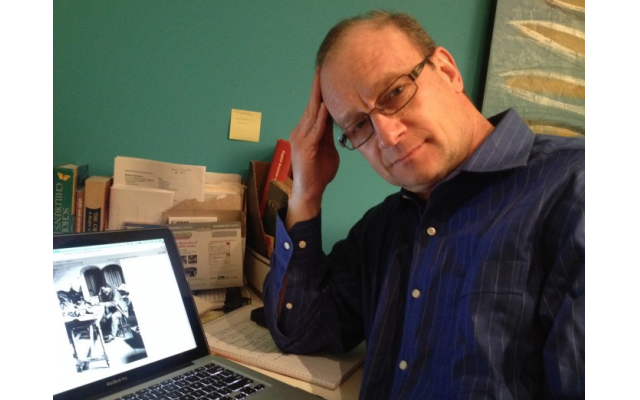Heed Hillel: Register and Vote
The wisdom of Jewish sages provides reasons why voting is important.
Dave Schechter is a veteran journalist whose career includes writing and producing reports from Israel and elsewhere in the Middle East.
The suggestion that Jews have an obligation to vote is often accompanied by this admonition from Rabbi Tarfon, as cited in the Pirke Avot (generally translated as “Ethics of Our Fathers”): “It is not your responsibility to finish the work of perfecting the world, but you are not free to desist from it either.”
By this reasoning, Jews who vote in the Nov. 6 election will be engaging in tikkun olam (“repairing the world”).
But to do this work, you must be registered to vote. Oct. 9 is the deadline to register to vote in Georgia.
Election Day is an occasion when Jews can – to varying degrees, depending on where they live – wield influence beyond their numbers, given their habit of voting at a much higher rate (upwards of 80 percent in presidential elections) than their fellow Americans.
Now that Labor Day is past, political campaigns that garnered attention during the summer primarily from dedicated volunteers and journalists now force even the disinterested and apathetic to take notice – if only to be annoyed by television ads and recorded telephone messages.
I have heard numerous people say that this year’s is the most critical election in American history, but the truth is that every election is the most critical election.
This being an off-year (non-presidential) election, it can be said with confidence that a disappointing number of Americans will cast votes.
Americans make a lot of noise about politics, but then absent themselves from making that voice heard at the ballot box, particularly compared with many other nations.
If you are thinking about siting out this election, consider the wisdom of the sage Hillel (also from Pirke Avot): “Al tifros min hatzibur. Do not separate yourself from the community.”
In 2016, only 58 percent of Americans – and a healthier 76.5 percent of eligible Georgians – voted, roughly equal to turnout in 2012, but less than in 2008.
Based on that estimated Jewish voting rate, it is possible that 2.2 percent of the U.S. population cast 3 percent of the ballots cast in 2016.
In the 2014 off-year election, turnout nationally was a paltry 36-plus percent, though again, Georgians showed better, with turnout of 50 percent.
According to census figures, roughly three-quarters of Georgia’s 10.4 million residents are of voting age, 18 and older.
That would be 7.8 million adults.
According to the state, more than 6.1 million people are registered to vote – 58 percent of the state’s voting age population.
If all of Georgia’s registered voters turn out (and they won’t), this 58 percent will make decisions that also affect the 42 percent who aren’t registered.
(This is where the saying “if you don’t vote, don’t complain” comes in to play.)
Jews make up an estimated 1.3 percent of Georgians, some 135,000 residents (though that figure may be several thousand higher).
If, in keeping with the state in general, three-quarters are age 18 or older, that would be about 101,000 Jews of voting age.
If all were registered and 80 percent turned out to vote, that would be more than 81,000 Jewish Georgians casting ballots.
Based on the 2014 off-year turnout in Georgia, that would be about 3.1 percent of voters.
Consider what an over-representation of Jewish votes might mean in the governor’s race between Democrat Stacey Abrams and Republican Brian Kemp, currently regarded as a toss-up by pollsters and prognosticators.
Or in the 6th Congressional District, which is about 8.4 percent Jewish, where incumbent Republican Karen Handel faces Democratic challenger Lucy McBath.
Or in contested races for the state House and Senate in such Jewish population centers as Sandy Springs, Dunwoody, or East Cobb.
Another lesson in why voting is important comes from Rabbi Yitzhak, as found in the Babylonian Talmud: “A ruler is not to be appointed unless the community is first consulted.”
Early consultations – er, voting- begins Oct. 15.
Heed Hillel, and do not separate yourself from the community. Make sure that you’re registered (again, that deadline is Oct. 9). Then vote.




comments